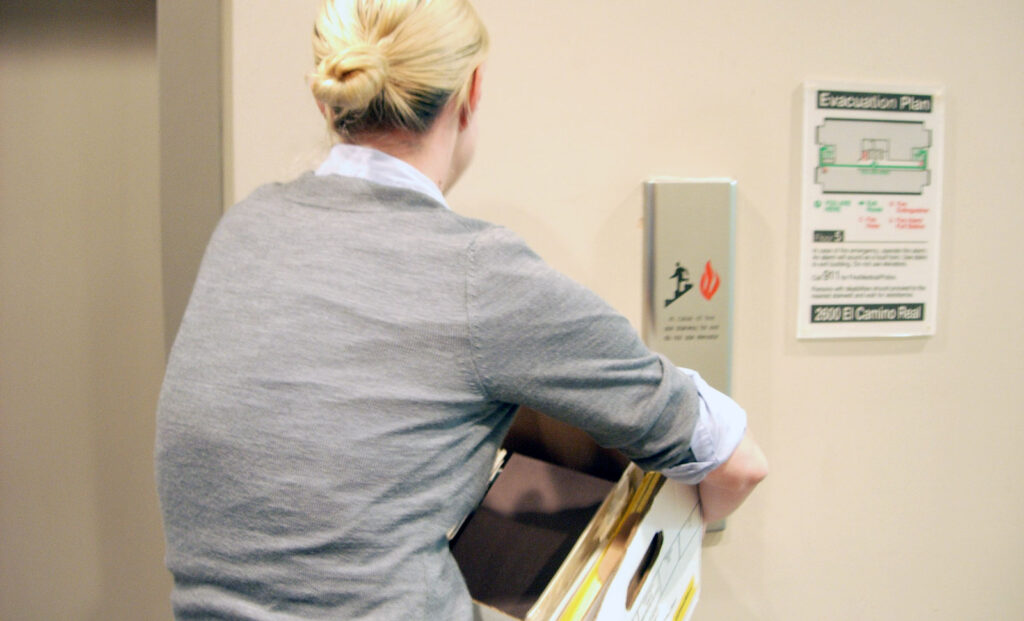Sexual harassment is defined as “unwelcomed sexual advances, requests for sexual favors, and other verbal or physical conduct of sexual nature” by the Equal Employment Opportunity Commission (EEOC). California State regulations define sexual harassment as “unwanted sexual advances, or visual, verbal or physical conduct of a sexual nature.” Harassment can happen in a wide variety of ways and it is best to be aware of the ever-changing laws about what types of conduct are illegal sexual harassment. Below is a list of several different ways sexual harassment can occur in the workplace:
California’s Examples of Sexual Harassment at Work
- Flirting after being asked to stop
- Promise of promotion if you go out on a date
- Continuously asking out a co-worker after being told no
- Touching oneself inappropriately in front of another co-worker
- Spreading rumors about another employee’s sex life
- Threatening demotion if subordinate refuses request for sex
- Posting nude or inappropriate photos of a co-worker
- Using sexist epithets
- Making unwanted physical advances on a co-worker
- Stalking
- Unwanted touchings
- Asking a co-worker about their relationships
- Asking co-worker about sex life
- Staring at someone and making them feel awkward or uncomfortable


What type of conduct is not harassment in California?
Oftentimes, there are misunderstandings about what actually is harassment under federal and/or state laws. Many in Northern California believe that having a relationship with a co-worker is against the law. However, the rule under California law is to look at whether the conduct is unwanted and creates an abusive work environment. While some workplaces have company policies against dating relationships with co-workers, they are not against the law and are not sexual harassment if they are wanted by both people.
Here are a couple of examples of what would not be considered harassment:
- Flirting that is welcomed and/or wanted. Although, it may sound wrong at work, flirting is okay if it is wanted by both people. However, flirting at work can be risky, because the other person might feel too pressured or scared to tell you that it is unwanted.
- Discussion of your personal life, as long as you and present company are comfortable with the conversation.
- Compliments. Again, this is only true as long as the compliments are not sexual in nature and do not create an abusive workplace.
- Physically touching another person, in a non-sexual manner.
If/When you begin to feel uncomfortable, it is important you say something. This can be very difficult, especially if the person is your boss. Before making a report, it is a good idea to contact a sexual harassment lawyer to help guide you and give you advice on what to do.
If you have made a complaint to the harasser or a superior, but the problem persists or worsens, you should immediately set up a consultation with counsel. The lawyer at Broderick Law is here to help make you aware of your rights and help you decide when and where to file a complaint.
Deadline in Northern California for filing your complaint
When you file a complaint for sexual harassment under the California Fair Employment and Housing Act, you are saying you are a victim of sexual harassment in the workplace. Typically, there is a time frame of three years to file your complaint with the California Department of Fair Employment and Housing. This was extended beginning in 2020 to give more time to sexual harassment an discrimination victims to make a complaint. The deadline used to be only one year. You can also file a complaint with the Federal EEOC (Equal Employment Opportunity Commission) However, the EEOC has shorter deadlines, and California laws tend to be more protective to victims of sexual harassment than Federal Title VII. There can be a variety of reasons why a victim should choose to file their initial administrative complaint with either the California or Federal agency. It is best to sit down with your lawyer and see what is your best plan of action. Talking over your options with a lawyer before making these decisions is always best.
At Broderick Law, our lawyer is here to assist Northern California residents with determining their best plan of action. Our lawyer has comprehensive knowledge of the laws that affect victims in California and help enforce the prohibition of sexual harassment in the workplace.


Investigating your claim in Palo Alto
After meeting with your lawyer, you and your lawyer will create a plan tailored to your goals and the specific facts of your situation. There are no set steps that all victims should follow. An experienced lawyer will strategize with you and create a plan of action to move forward, instructing you of your legal rights.
Once you and your lawyer have created a plan and your employer is given notice about the sexual harassment, California law obligated your employer to perform an investigation, and to take steps to protect you and stop the sexual harassment. There are many different steps that victims in California can take.
- Some victims opt to have a lawyer attempt to settle their claims prior to taking legal action.
- Some California sexual harassment victims opt to have their lawyer obtain an automatic right-to-sue notice from the California Department of Fair Employment and Housing and file a lawsuit in California Superior Court.
- Some California victims have already filed a claim with the Federal EEOC before speaking with a California workplace harassment lawyer. Because of favorable differences between California and Federal laws, once getting a lawyer these victims can usually still take the steps necessary to file a complaint in California State Court.
Unfortunately, the laws on sexual harassment are constantly changing and you need an attorney who is up-to-date on the current laws. At Broderick Law, we work tirelessly to ensure we are well-versed on the current sexual harassment laws in the state of California. Contact us today to find out more information about your rights in the workplace.


